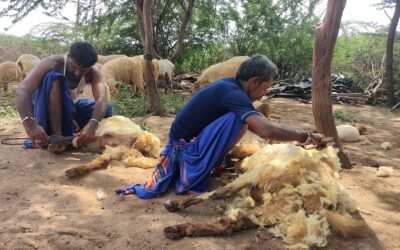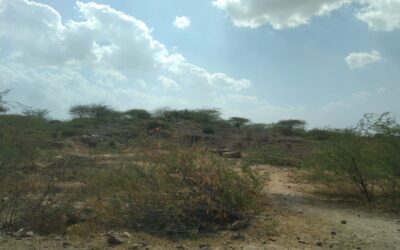During my stay in the United Kingdom, I volunteered at a not-for-profit organization which worked for advocacy of human rights. As a case-worker, I had developed empathy for people’s problems and started to believe in the romantic ideology that people are devoid of opportunities and rights. So, if I can give them a little push, they will eventually develop the confidence and progress. It was probably one of the reasons which convinced me to apply for the fellowship at India Fellow. However, as I started working in the tribal belts of Kalahandi, Odisha, I realized I was wrong.
A few weeks ago, I was in the health center at Kerpai. A field animator approached me and told about two sisters, adolescent girls who were extremely sick, in a remote village of his cluster. He requested me to go and see them. The next day, I took my backpack with a stethoscope, a few medicines and went to see the girls accompanied by the field animator. The only way to access the village is by crossing a river on foot, in the absence of a road or a pathway.
After hopping from one stone to another, I managed to cross the river and reach the village, making my way to their house. The girls looked underweight, malnourished, pale and weak. They couldn’t even walk properly and had high fever. Additionally, they were experiencing Hemoptysis (coughing up of blood) since last 2-3 weeks, which is highly indicative of TB. While listening to their internal sounds of the body through the stethoscope, I found abnormal breathing which could be a lower respiratory tract infection.
When I interrogated their grandmother for medical history of the family, she revealed that the parents of these girls died of severe fever and coughing with blood a year ago. It could have been TB, and hence, I requested her to send the girls to a hospital, which is 75 km away. As she worried about the expenses, I assured her that we will take care of that, including transportation, hospital stay and medicines. Her immediate response was to refuse. It made us extremely angry, and my first thought was, ”Even when I’m bearing the cost, why is she so stubborn? What the heck is wrong with her?”
She asked us to wait for the grandfather who had gone for “donger kaam” or farming. After a while, he returned, smoking a beedi. We told him the serious health implications for both his granddaughters and that they don’t need to bother about the expenses. But he refused too, without a second thought. Surprisingly, most of the villagers were also supporting him. One of them had the audacity to ask if we were there to buy the girls.
After hours of making an effort to convince them, we understood that they’ll never go to the hospital and decided to go back to the health center. I couldn’t wait to narrate this incident to Dr.Aquinas, founder of Swasthya Swaraj, the organization where I’m working. She was shocked to know the story and also suspected TB in girls. Next day, she sent a jeep with the staff to convince them to come to the Kerpai health center. This time, the grandfather was under the influence of alcohol. Both the girls were crying, but willing to go to the hospital. However, the old man and his wife refused to send them. After hours of failed pleading, the jeep returned.
I asked the field animator, “What could be the reason such stubborn attitude of the old couple?” He said that the grandparents were probably thinking that if girls are treated, they will have to take care of them and get them married which comes with additional burden of dowry they couldn’t afford. It would be better for them if girls die a natural death and become one with nature. Such thought process isn’t new here. I’ve been in situations where mothers refuse to admit their children in medical care to be cured of Severe Anemia, Severe Acute Malnutrition (SAM), and Severe Malaria.
All this while I was angry with the old couple for refusing hospitalization of their grandchildren. I was trying to show that my belief system, morality and ethics were absolute and universal, no matter their extremely different circumstances. I forgot to make an effort and understand morality and values in their perspective. Think about it – they have lived all their lives in the tribal pockets of Kalahandi which has a grim history of extreme poverty, starvation, and famines for decades. If we put ourselves in their place, it makes sense despite the conflicts with my belief system and morality. They had to work hard to feed their families. Admitting the child to the hospital means letting go the wages for that day, leading to lack of food to feed the family for at least 2-3 days. If the choice is to save one child over the rest of the family, obviously the latter is priority.
After working here, I feel that people in the development field will always have this dilemma. It is crucial to understand the values and background of the community where we’re working. Simply shoving our ideals and beliefs on them won’t help solving anything.




I think the more I read about Kalahandi from your experiences, it opens my mind to the craziness of the reality at the grassroot levels. How do you even wrap your head around the prevailing morality if it is so far away from what we even believe to be justified! It would be really interesting to know your thoughts on what kind of intervention could possibly have the slightest of influence in such a scenario.